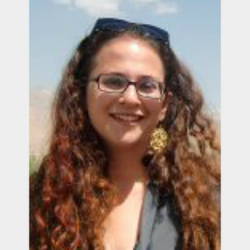Biography
Coming from a human rights background and having work experience with United Nations Peacekeeping Operations for the last four years, I developed an interest in prison reform and issues concerning crime in post-conflict countries. In 2008, I worked as a human rights officer in Liberia for the Office of the High Commissioner for Human Rights in a local county prison, which suffered from serious human rights and operational problems and was barely operational due to the constant overcrowding (up to 400% at times) and the sub-human conditions. Working daily at this prison, I realised that what really fascinated me was the interplay between crime and human rights in the context of post-conflict states; this ultimately led me to pursue an MA in Criminology at King's College in London. In accordance with these interests, my MA thesis looked at UN-sponsored prison reform and criminal justice programmes in several UN missions, and was a critique of the virtually identical programmes that the Department of Peacekeeping Operations has rolled out in several post-conflict countries, despite notable incompatibilities with local traditions and crime control systems, and arguably with limited success.
I recently completed a one-year mission with the UN Assistance Mission, in Bamyan Province of Afghanistan, where I encountered a very different scenario of post conflict crime – relatively few cases of inter-personal violent crime, especially among youth. This experience of living and working in Afghanistan led to the idea to focus my PhD research on post-conflict societies which exhibit lower crime rates: what the real data are on this (there might be under-reporting of crime involved due to traditional conflict resolution systems), what characteristics of these societies might contribute to this phenomenon and why certain societies emerging from conflict exhibit high rates of inter-personal crime, especially among youth, and others do not.
My research will therefore look generally at patterns of crime in post-conflict countries (or areas within countries), and focus specifically on the example of several provinces in Afghanistan that are in a post-conflict stage. At a later stage I would like to perhaps examine the conclusions brought forward through the empirical research on post-conflict societies with low crime rates, with a critical view to how the international community addresses and reconstructs criminal justice systems in these countries and situations.

